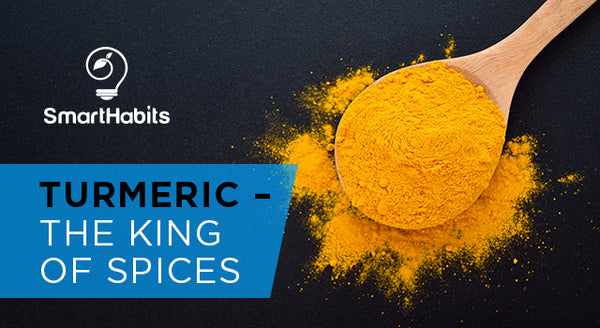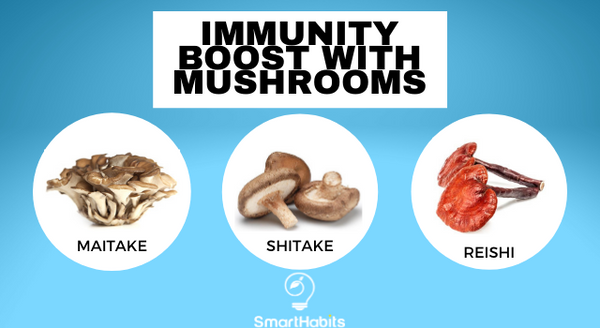Anxiety is the most common form of mental illness in the USA. According to the Anxiety and Depression Association of America anxiety affects over 18% of adults. While long-term cases of anxiety require medical attention, there are ways to reduce anxiety and stress symptoms through the food we consume.
Often when we feel anxious or stressed the first response is to reach for sugar-laden junk food. Although these foods create temporary relief, the sharp rise in blood sugar that they create results in an equally fast crash often spiralling the cycle of sugar intake, and anxiety out of control. A study by the US National Institute of Health found that being exposed to high levels of sugar resulted in heightened symptoms of anxiety and stress plus had a negative effect on sleep. A paper by Harvard University suggests that foods high in magnesium, zinc, omega 3 fatty acids or containing probiotics may help to reduce anxiety and encourage stress reduction and sleep.
Five foods to incorporate into your diet to reduce anxiety and stress are:
- Nuts
Most nuts are very high in magnesium. Brazil nuts are the most dense with 350mg per 100g serving. Brazil nuts are also high in selenium, which is responsible for maintaining our mood and combating depression. Almonds, cashews, peanuts and hazelnuts are also great sources of magnesium and can be incorporated into your diet as a snack, topping on breakfast granola or added to salads. Nut butters are also a wonderful way to incorporate more nuts into your diet and are a yummy spread for breads, crackers or added to salad dressings.
- Legumes
Legumes are a fantastic source of protein, zinc and minerals. A study carried out in 2011 by the US National Institute of Health found that low levels of zinc plasma had a significant impact on anxiety levels. Chickpeas, lentils and legumes are all very high in zinc. 1.5 cups of cooked lentils contains almost 12% of the recommended daily intake of zinc. Be aware that legumes also contain phytates, which lower the ability of the body to absorb zinc and therefore, sprouting, heating or soaking legumes increases the bioavailability of nutrients. Otherwise, shellfish and hempseeds can also be incorporated to boost levels of zinc.
- Salmon
In a study by the China Medical University Hospital patients with anxiety who were given Omega 3 treatment showed reduced levels of anxiety compared to those who did not. There are two omega 3 fatty acids in the brain, the first is called docosahexaenoic acid or DHA, and the second is called eicosapentaenoic acid or EPA. These acids are both responsible for keeping neuro inflammation under control which aids in anxiety and stress reduction. Fish, particularly Salmon is extremely high in omega 3. Eating 150g of salmon once per week is enough to provide the recommended intake. Although there are very few plant-based foods containing both DHA and EPA, Algal Oil contains both and stands out as an excellent supplement choice.
- Sauerkraut
Sauerkraut is an excellent fermented food and therefore a rich source of probiotics. Probiotic food is often seen as relating purely to gut health, however, research has shown that there is a direct link between gut bacteria and brain function. The gut and brain communicate in numerous ways and direct links between the consumption of fermented foods and the reduction of stress and anxiety are being found. A study published in National Institute of Health revealed that gut health helps to influence the release of serotonin and modulate stress responses. Incorporating sauerkraut and other fermented foods additionally supports the ability of our body to absorb other minerals like magnesium and zinc. Sauerkraut is usually available with different spices and vegetables. Other fantastic sources of fermented foods are yogurt, kombucha and miso.
- Chamomile Tea
Chamomile tea is a widely used sleep aid, however, a recent study by the University of Pennsylvania revealed that the use of chamomile actually reduced the symptoms of anxiety in patients officially diagnosed with a General Anxiety Disorder. Chamomile tea can be an effective way to calm down our body and mind, plus the warmth of the tea may continue to soothe our stress levels. Chamomile is also available in capsules and oil which reduces the symptoms of anxiety in the same way.
Other lifestyle activities which may help reduce the symptoms of anxiety include; Yoga, meditation, mild exercise and being in nature. If you experience symptoms of anxiety for 6 months or longer, or at debilitating levels it is important to seek medical help.
References
Amsterdam JD, Li Y, Soeller I, Rockwell K, Mao JJ & Shults J, A randomized, double-blind, placebo-controlled trial of oral Matricaria recutita (chamomile) extract therapy for generalized anxiety disorder, published 2009, J Clin Psychopharmacol, doi: 10.1097/JCP.0b013e3181ac935c
https://nccih.nih.gov/research/results/spotlight/040310.htm
Anxiety and Stress Association of America, Facts and Statistics, https://adaa.org/about-adaa/press-room/facts-statistics
Avena NM, Bocarsly ME, Rada P, Kim A & Hoebel BG, After daily bingeing on a sucrose solution, food deprivation induces anxiety and accumbens dopamine/acetylcholine imbalance, US National Institute of Health, published 2008, doi: 10.1016/j.physbeh.2008.01.008, https://www.ncbi.nlm.nih.gov/pubmed/18325546.
Dash S, Clarke G, Berk M, Jacka FNm The gut microbiome and diet in psychiatry: focus on depression, published 2015, Curr Opin Psychiatry, doi: 10.1097/YCO.0000000000000117, https://www.ncbi.nlm.nih.gov/pubmed/25415497#.
Kuan-Pin S, Ping-Tao T, Pao-Yen L, Association of Use of Omega-3 Polyunsaturated Fatty Acids With Changes in Severity of Anxiety Symptoms A Systematic Review and Meta-analysis, published 2018, Jama Netw Open. Doi: 10.1001/jamanetworkopen.2018.2327, https://jamanetwork.com/journals/jamanetworkopen/fullarticle/2702216.
Russo, AJ, Decreased Zinc and Increased Copper in Individuals with Anxiety, published 2011, Nutr Metab Insights, doi: 10.4137/NMI.S6349
https://www.ncbi.nlm.nih.gov/pmc/articles/PMC3738454/
Statements made on this website have not been evaluated by the U.S. Food and Drug Administration. Information provided by this website or this company is not a substitute for direct, individual medical treatment or advice. It is the responsibility of you and your healthcare providers to make all decisions regarding your health. SmartHabits recommends that you consult with your healthcare providers regarding the diagnosis and treatment of any disease or condition. Products sold on this website are not intended to diagnose, treat, cure, or prevent any disease.




